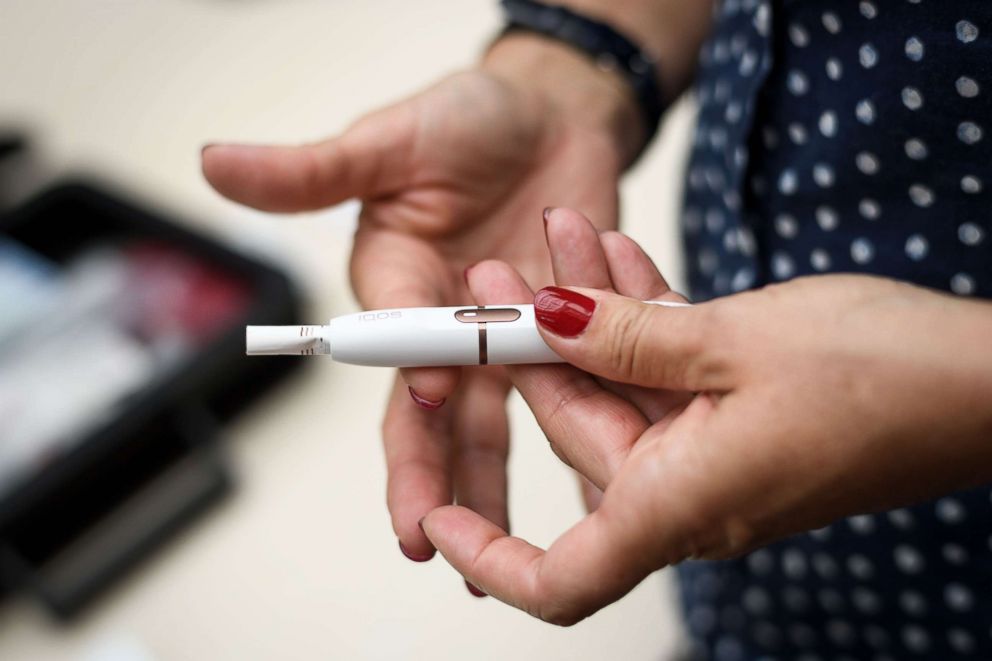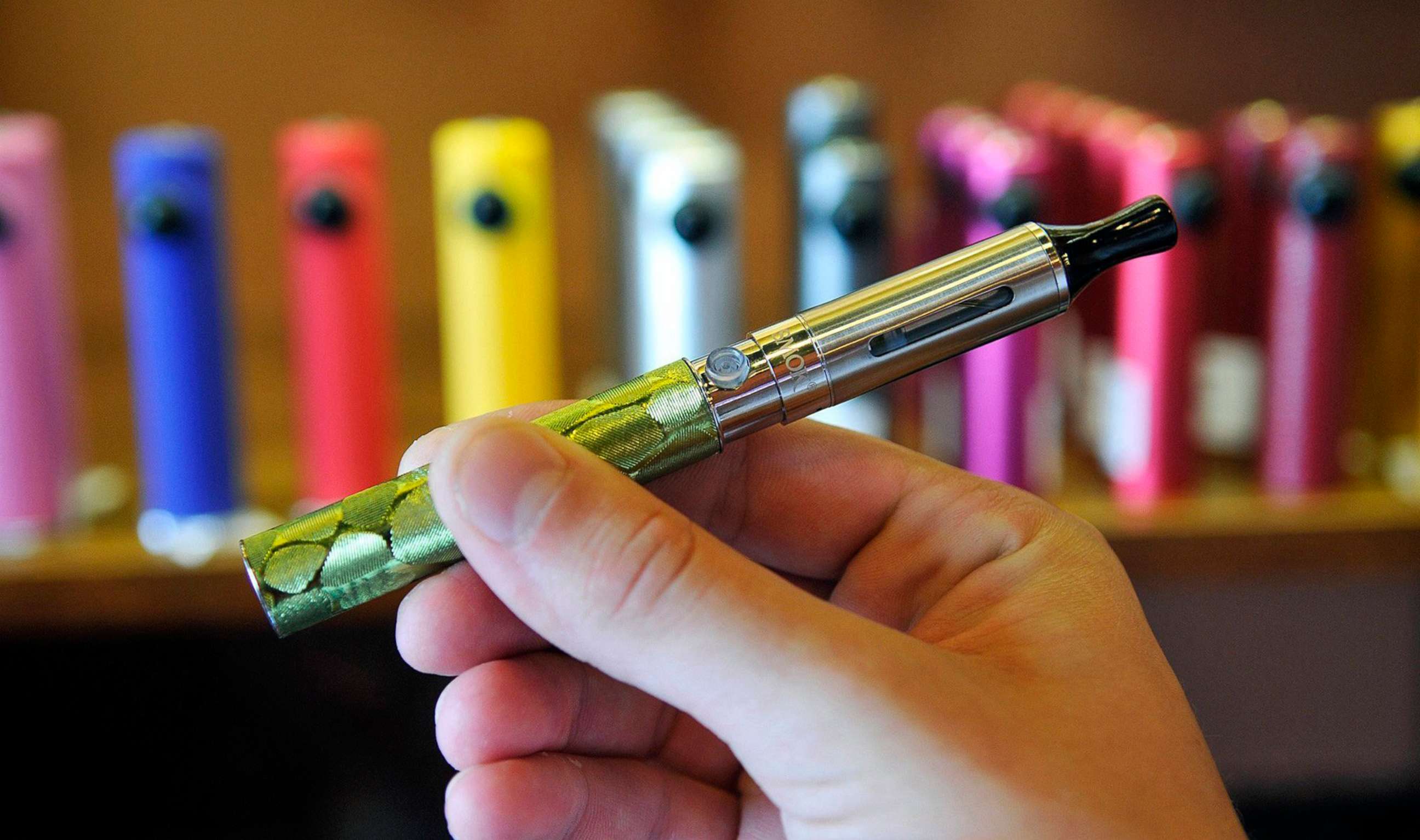FDA calls e-cigarettes 'an epidemic' among minors, cracks down on retailers
The agency issued fines against retailers selling the e-cigs to minors.
The use of e-cigarettes has become an "epidemic” among children, according to the U.S. Food and Drug Administration, which said it is taking the most aggressive steps in the history of the agency to slow the rate at which young people become addicted to the product.
Fines and warning letters have been issued to e-cigarette retailers after the FDA found them unlawfully selling e-cigarette products to minors, including the popular brand Juul, the FDA announced Wednesday.
FDA Commissioner Scott Gottlieb said the agency recently received data confirming that more and more young people, even high school students, are using and becoming addicted to nicotine through e-cigarettes. The rate at which teenagers have become addicted to nicotine from e-cigarettes is alarming, he added.
"We're seeing an acceleration in the use of the cigarettes to levels that simply aren't tolerable,” Gottlieb told ABC News.
“We have access to data that tells us that the growth in youth use of the cigarettes has reached what I'm calling epidemic proportions and we need to step in and take action to try to stem that use to try to bring the rates of use among young people down, particularly high school students.”

The government targeted the retailers as a result of an "undercover blitz" of both physical stores and online retailers, the FDA said, adding that more than 1,100 warning letters and 131 fines were issued.
The agency is worried an entire generation of young people will be addicted to nicotine from using e-cigarette products, Gottlieb said.
Many e-cigarette products like Juul are intended to help adults move from traditional cigarettes to e-cigarettes that don't have some of the health risks like lung cancer that come with burning tobacco. But nicotine is not a benign substance and can have detrimental effects on a developing brain, Gottlieb said, adding that young people addicted to nicotine can also transition to smoking traditional cigarettes.
Because of that public health risk, Gottlieb said, the FDA is willing to take aggressive action such as pulling flavored liquid tobacco off the market or requiring manufacturers to limit the amount of nicotine to make it less addictive, even if that means fewer products are available for adults.
"We think these cigarettes can offer a potentially less harmful alternative for adult smokers so we don't want to see these products eliminated from the market,” he said. “But the availability of these products for the adults cannot come at the expense of hooking a whole generation of young people on e-cigarettes.
“And if we have to narrow the off-ramp for adults in order to close the on-ramps for kids, that's a step we're prepared to take.”

Health and Human Services Secretary Alex Azar Wednesday released a statement in support of the decision.
"No child should be using any tobacco or nicotine-containing product," Azar said in a statement.
"We commend the FDA for the critical, immediate and historic action to address the sale and marketing of these products to kids, while it examines additional aggressive steps to stem the troubling trend of their use among youth," the statement reads.

Gottlieb said he has been warning e-cigarette companies for more than a year that the government had become concerned that too many young people were using their products but that the industry's response has not done enough to discourage the trend.
"Regardless of what steps they've been taking, the fact remains that the use is continuing to rise,” he said. “It's reached proportions that we are calling an epidemic among teenagers. And so whatever steps they've taken to date hasn't been sufficient to try to stem that growth.”
Juul, one of the most popular manufacturers of liquid tobacco, said in a statement it is committed to working with FDA to prevent teens from using its product, including looking at restricting the available flavors.
"Our mission is to improve the lives of adult smokers by providing them with a true alternative to combustible cigarettes. Appropriate flavors play an important role in helping adult smokers switch. By working together, we believe we can help adult smokers while preventing access to minors, and we will continue to engage with the FDA to fulfill our mission," Juul Chief Executive Officer Kevin Burns said in the statement.
In addition to taking actions to enforce laws about selling tobacco to minors and pursuing new regulations on e-cigarettes, the FDA is launching a campaign to educate young people about the risks associated with nicotine.
It will be the first time the FDA launches a campaign specifically targeted at teenagers, Gottlieb said, including placing information in school bathrooms.
ABC News' Meghan Keneally contributed to this report.




